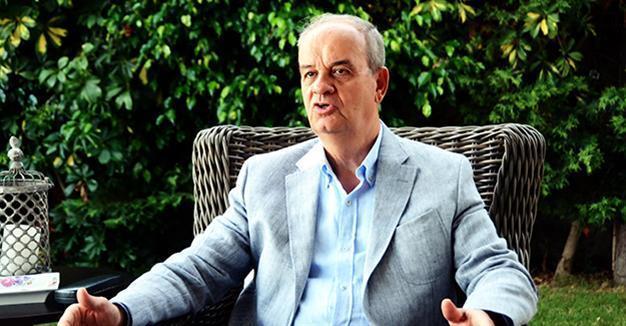CIA also behind failed coup attempt: Former Turkish army chief
ANKARA

DHA photo
Turkey’s former army chief, İlker Başbuğ, has commented on the July 15 failed coup attempt, believed by the ruling Justice and Development Party (AKP) to have been masterminded by the Fethullahist Terrorist Organization (FETÖ), saying the U.S. Central Intelligence Agency (CIA) was also behind it.“There was foreign support in this uprising. It’s against its nature if there isn’t. Where does [U.S.-based Islamic scholar Fethullah] Gülen live? In the U.S. Who gives him the opportunities? The CIA,” Başbuğ told private broadcaster CNN Türk on Aug. 1, as he added that the CIA planned to use FETÖ in order to harm the Turkish Armed Forces (TSK).
“Does Gülen have a residence permit in the U.S. for nothing? Did you think that the intelligence wouldn’t use him?” he asked.
Saying that FETÖ members who infiltrated into the TSK didn’t act alone while carrying out the attempt, Başbuğ noted the ones who directed them from the outside had their own intentions.
“Did they [FETÖ members inside the TSK] have their own unique aims and intentions? The ones orchestrating this movement had those aims,” he also said.
Başbuğ mentioned Turkey’s demand from the U.S. to extradite Gülen, saying that if the U.S. didn’t do it, it meant “they will continue to use him.”
“If the U.S. extradites him, then it means that his expiration date has passed,” he said.
Noting that three groups were behind the failed takeover, Başbuğ said that the main group consisted of Gülenists.
“The Gülen movement planned and masterminded the July 15 uprising. The second were the ones not acting immediately, the ones that were late and hesitant. Were those Gülenists? No. The third group could consist of the people who weren’t Gülenists, but who wanted to take advantage of the events,” he said.
During his interview, Başbuğ said FETÖ planned to form a state system that suited “their own understanding of religion,” adding that he didn’t characterize the July 15 failed coup attempt as a “military coup.”
“I don’t characterize the uprising on July 15 as a military coup. It’s not similar to other military coups and I don’t lean towards defining it that way. This was an armed coup action by the Gülen movement,” he also said.
When asked about his thoughts regarding the scope of the coup attempt, Başbuğ said that the planning behind it “shouldn’t be underestimated.”
“We are faced with an organization that has spread into a very wide surface. Don’t underestimate the planning,” he added.
Saying that the private soldiers “who were deceived shouldn’t be handled” in the same category as the coup plotting soldiers, Başbuğ added that the ones who used weapons “should be tried.”
The former army chief said military activity in the Bodrum district of the southern province of Muğla on July 14 grabbed his attention, but he didn’t expect such “an uprising.”
In the interview, Başbuğ stressed that the National Intelligence Agency (MİT) carried responsibility for the infiltrations into the TSK, adding that the dismissals from the TSK between 2002 and 2010 were done in accordance with MİT reports and “not one single dismissed person from the armed forces was a FETÖ member.”
“They used us in order to get rid of the members of a rival movement,” Başbuğ said, adding that healthier information could be obtained if the aide of the MİT chief was a soldier.
Saying that the TSK was not able to track soldiers outside their army barracks, he noted the MİT should shoulder that task.
The TSK was also among the institutions that Başbuğ criticized, saying that its command couldn’t “pass a test.”
“The reason for the TSK not being able to take precautions should be examined,” he said.
In addition, Başbuğ talked about the previous “notices” given to the AKP on FETÖ, saying that they were dismissed.
“’The threat is now to us and tomorrow to you,’ we said, but they told us that we were exaggerating,” he said, as he added that President Recep Tayyip Erdoğan struggled against the Gülen movement “by himself” between 2012 and 2016.
















